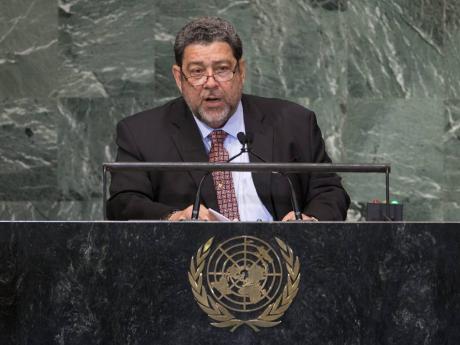
I begin this week by acknowledging Caribbean Community (CARICOM) Day, which is customarily July 4 but, this year, will be commemorated on Monday, July 6. Also, on July 2, the Prime Minister of St Vincent and the Grenadines, Dr Ralph Gonsalves, will assume the chair of the CARICOM Conference of Heads of Government.
I read a recent news report about a Jamaican company, Spur Tree Spices, beginning to export its products to Costa Rica. Given the importance of this development, I decided to look this week at CARICOM’s trade with Latin American countries, focusing specifically on Mexico, Central and South America. CARICOM’s natural trading partners are in this hemisphere – Canada, USA, and the countries in Latin America and the Caribbean. The region’s principal trading partners, however, are USA; the European Union, including Britain; and Canada. Where are the Latin American countries? You will note that there is something in common between CARICOM and its principal trading partners, which is a historic relationship with Britain. In most of CARICOM, the official language is English, while in Latin America it is Spanish and Portuguese. In the 18th and 19th centuries, there was a relationship with some countries in Latin America, for example, Venezuela. British West Indians would later find work and residence in Ecuador, Colombia, Honduras, Costa Rica, Panama and Nicaragua, leaving a West Indian diaspora in most of these countries.
The 20 Latin American countries, from Mexico in the north to the tip of South America, present CARICOM countries with a market of 595 million people. Panama is about an hour’s flying time from Jamaica in the north; Trinidad and Tobago is less than an hour from Venezuela in the south; Belize is in Central America; and Guyana and Suriname are in South America. Yet, for some in CARICOM, language and culture are barriers to trade. Trade figures between CARICOM and these Latin American countries have been consistently low. In 2019, total CARICOM goods exports to the 20 countries is estimated at about US$2.2 billion and imports at about US$3 billion, giving Latin America a trade surplus. In trade in services, there have been some attempts to encourage tourism and investments from Latin America. There should be room to expand trade.
Latin America and the Caribbean, however, is not a well-integrated region. COPA is the only Latin American airline which flies into the CARICOM region (Guyana, Belize, Barbados, Trinidad and Tobago, and Jamaica). Caribbean Airlines goes to Caracas, Venezuela. Otherwise, the route to Latin America is through Miami, Florida.
Resident diplomatic representation is also weak. Several Latin American countries are represented in the CARICOM region, but few CARICOM countries are present in Latin America. The main countries having more than one CARICOM embassy were Brazil, Mexico, and Venezuela.
There have been efforts to promote regional integration through the Community of Latin American and Caribbean Countries and the Association of Caribbean States, headquartered in Trinidad and Tobago. It has also been an objective of the Inter-American Development Bank.
FREE-TRADE AGREEMENTS
In the 1990s and 2000s, there was CARICOM interest in promoting trade with Latin America. The CARICOM-Venezuela Trade Agreement was concluded in 1992, the CARICOM-Colombia trade agreement in 1994, and CARICOM-Costa Rica in 2004. There was quite a bit of activity around the Free Trade Area of the Americas negotiations, which were abandoned in 2005. There was also the PetroCaribe Agreement with Venezuela which, besides petroleum, had a trade component. These trade agreements have been underutilised. The relationship with Venezuela is now mired in political controversy.
Trinidad and Tobago has partial scope agreements with Panama, El Salvador and Guatemala; Guyana with Brazil; and Belize has agreements with all her neighbours.
There were proposals to negotiate trade agreements with Central America and MERCOSUR, neither of which came to fruition. There was also interest from Mexico and Chile. Promoting trade with Brazil has not borne fruit, as intended.
A POST-COVID SHIFT IN GLOBAL SUPPLY CHAINS
The question is now being posed; post COVID-19, should there be a relocation of global supply chains to regions, would Latin America and the Caribbean be able to benefit? I am more narrowly asking whether CARICOM countries could benefit? Would they be able to collaborate with Latin American countries in joint ventures?
CARICOM countries need to consider Latin America as a viable market for both goods and services. Language, culture, and market requirements should not be insurmountable barriers to trade. Spur Tree Spices is showing that there could be opportunities if CARICOM private sectors and governments are prepared to conduct further exploration, even with projected economic recession.
This article was originally published by the Jamaica Gleaner and submitted by Elizabeth Morgan, Specialist in International Trade Policy and International Politics.

